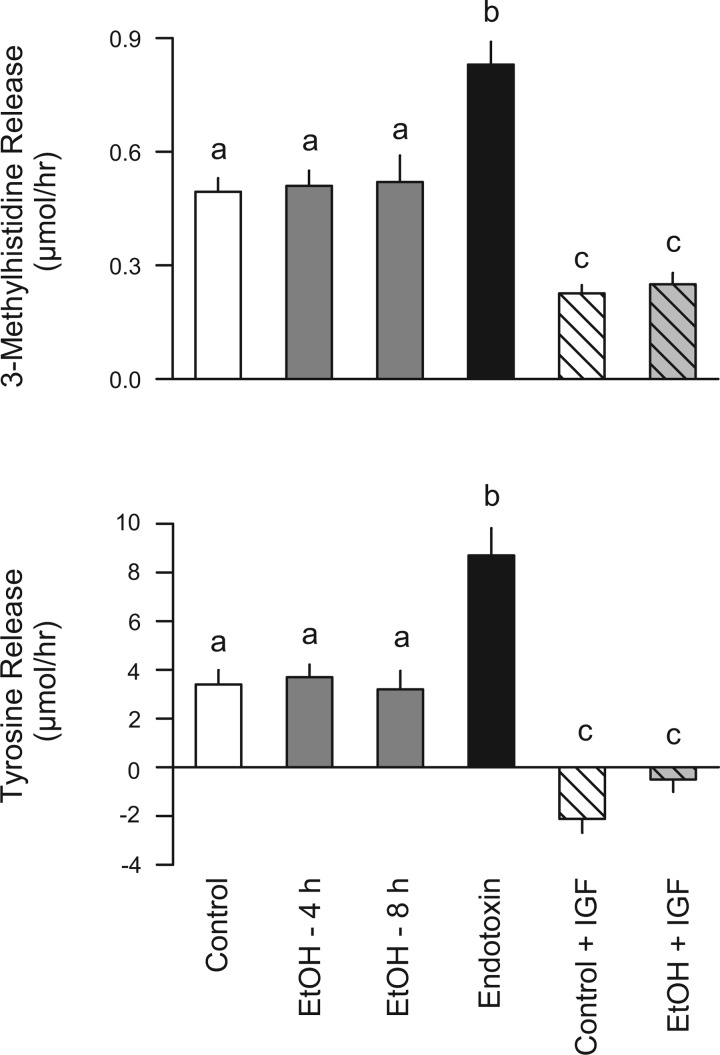Fig. 7.
Effect of in vivo alcohol administration on 3-methylhistidine and tyrosine release by the isolated perfused hindlimb. Male overnight fasted rats were treated in vivo with alcohol (75 mmol/kg ip). Rats were anesthetized, and the hindlimb was isolated and perfused at either 4 h or 8 h thereafter. The perfusate was continuously oxygenated and recycled for the 2-h perfusion period, and the 3-methylhistidine concentration of the perfusate was determined at time 0 and 120 min. In alcohol-treated rats, the perfusate also contained ∼250 mg/dl of alcohol, the concentration of which remained relatively constant during the perfusion period (31). Time-matched control animals received an intraperitoneal injection of saline, and because there were no statistical differences among the various control groups, their values were combined. Positive control, rats injected in vivo with endotoxin. Negative control, control and alcohol-treated (4 h) rats perfused in situ with IGF-I (10 nM) for 2 h. Values are expressed as means ± SE for n = 8 or 9 rats per group. a,b,cMeans with different letters are statistically different from one another (P < 0.05).

